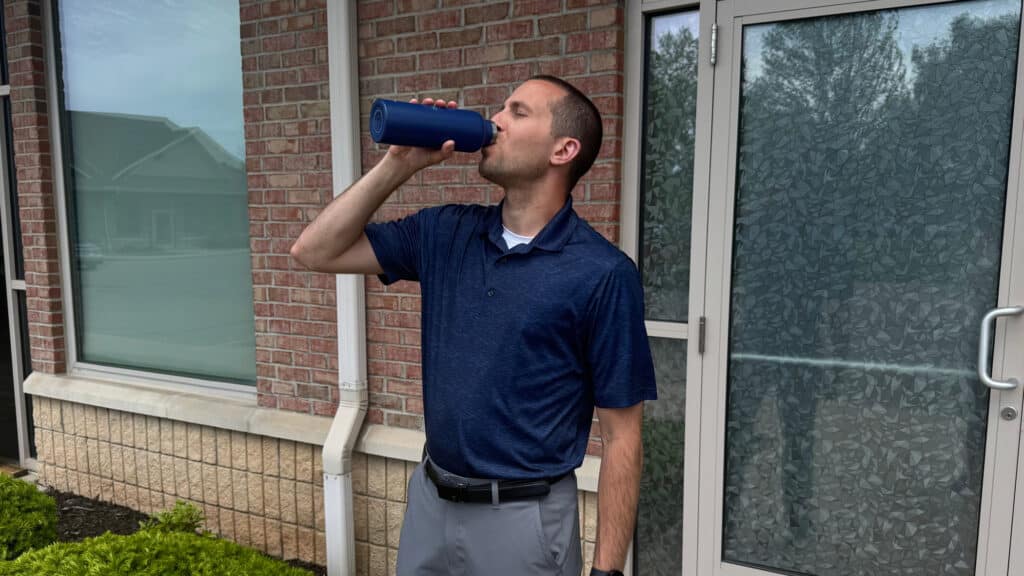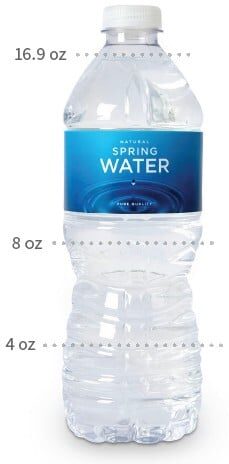Hydration 101

Why Hydration Matters
Hydration is key to staying energized, performing at your best, and recovering faster. Dehydration can lead to cramps, fatigue, and even reduce how efficiently your heart pumps blood during exercise.
 Hydration Tips
Hydration Tips
1. Listen to Your Thirst
• Drink water (with electrolytes) when you’re thirsty.
• Don’t overdo it; too much water can dilute sodium levels in your body, causing weakness or dizziness
2. Daily Fluid Intake
• Males: 100-125 oz (3-3.7 L) per day. 6-8 bottles of water
• Females: 85-120 oz (2.5-3.5 L) per day. 5-7 bottles of water
• Include water from food (about 20% of daily intake)
3. Before Exercise
• Drink 16-20 oz (500-600 mL) of water 2-3 hours before activity.
4. During Exercise
• Sip 4-8 oz (120-240 mL) of water or sports drink every 15-20 minutes.
5. After Exercise
• Drink 16-24 oz (500-700 mL) of water or a sports drink for every pound of body weight lost.
Electrolytes: Why They’re Important
• Sodium helps maintain fluid balance and prevents cramps. Add 1 gram of sodium per liter of water to replace what you lose through sweat.
• For long or intense activities (over 2 hours), use electrolyte drinks with a small amount of glucose for added energy and better absorption.
How to Monitor Hydration
• Urine Color: Light yellow is ideal.
• Sweat Loss: Weigh yourself before and after exercise to estimate how much water you’ve lost.

Quick Rule – Drink electrolyte water based on thirst during games or workouts. For longer efforts, add a little sugar for energy.
*These general hydration guidelines follow current sports nutrition principles, but individual needs vary by age, weight, activity, health, and goals. Consult a registered dietitian, sports nutritionist, or healthcare professional before making major dietary or supplement changes.
